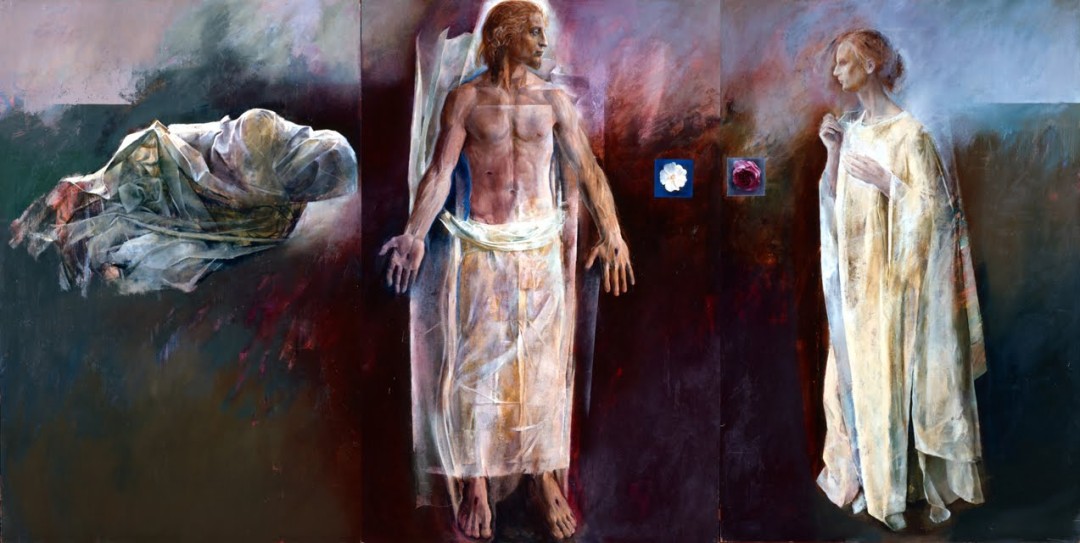The Christian story is remarkable, in part because it’s so unlikely. David Riordan explains:
You look at some of the other avatars, like Buddha or Krishna, they were around for a while. For Buddha it was almost forty years that he taught and went through evolutions of that teaching and got feedback. With Jesus you basically see a ministry that was maybe a year to a year and a half, from the time he was baptized by John at the river to the point that he’s crucified on a cross. That’s an extraordinarily short period of time.
In that short span, he planted a seed that would grow to resonate with billions of people around the world. In certain times and places, of course, people didn’t have much choice but to accept the Christian doctrine–it was spread by the sword. Many of us—like David and Jeff— were born into it and had to leave it behind for years before circling back and re-discovering the gifts it has to offer.
It offers the story of love.
“Ken [Wilber] would say that Buddhism is really about the mind and emptiness,” says David, “and Christianity is really about the heart and relatedness, and both those things inform his path.”
Excerpt | A postmodern view of miracles
Modernity seemed intent on verifying the historical person that was Jesus, emphasizing his humanity. Postmodernity is focused on the message of the heart: love and service, and caring for those left behind. So what does an integral Christian practice look like? In addition to bringing forward the best of modern and postmodern values, it might be bringing back something that we thought we lost: faith.
In this recording, David speaks about his awakening to the Christ Consciousness later in life, while he was working as a film producer. For Jeff, a longtime Buddhist practitioner, God came back into his life when he discovered integral theory. “I can’t imagine my spiritual life without both god and emptiness, even though they are doctrinally opposed to each other. With an integral perspective we can hold the tension of those polarities, and find that it’s all the richer.”
Integral not only gives us permission to cultivate first, second, and third person spiritual practices, but it tells us we are missing out if we aren’t exploring these perspectives, each representing a unique and irreducible dimension of awakening.
An integral inquiry into Christianity brings up many questions. Do you have to believe the stories to get the gifts? Do you need to subscribe to the virgin birth, the walking on water, the crucifixion and resurrection? Do you need to believe in miracles?
“I would say there is a postmodern view of miracles,” David says, “because what are most of the miracles about? Most of the miracles are about healing.”
Listen to the conversation below, and find out more about the Return to the Heart of Christ Consciousness conference, March 27th–30th at St. Julian Hotel & Spa in downtown Boulder, here.
Daily Evolver listeners receive $75 off by using the code DERHCC110 to register.
Podcast: Download
Subscribe: Google Podcasts | RSS






